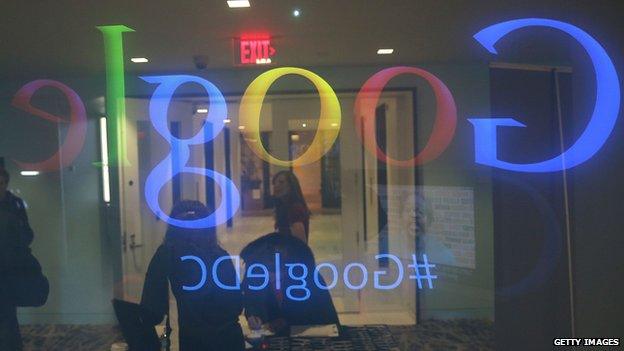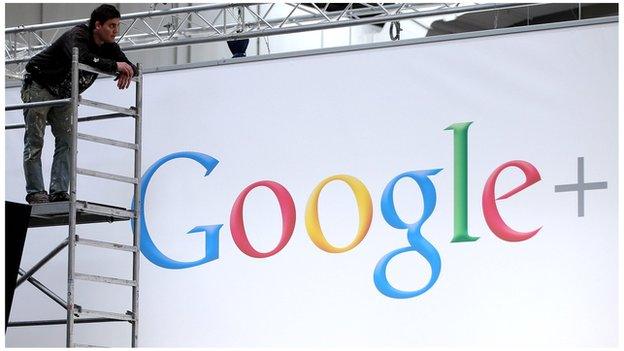Google investors welcome Alphabet plan
- Published

A new-look Alphabet for Google
Google's shares rose over 6% in after-hours trading Monday after it announced a massive restructuring.
The plan creates a new holding company, Alphabet, to run all the Google companies.
The biggest of these will be the search engine Google, including Google Play, YouTube, Chrome, Google Maps and Android.
More speculative projects like driverless cars and Google Glass will be run separately under Alphabet .
On the face of it there will be little change as operations will stay the same. Users will see no difference.
But for investors, the biggest appeal is that the structure should make it easier to identify the profitability of the core Google operation.
Investment banking firm Stifel changed its rating of Google shares from "hold" to "buy" and said: "We believe this combination leaves the possibility for shares to exceed the S&P 500 return for many years on the back of this new operating structure."
Investors
The idea is to make Alphabet "cleaner and more accountable", according to Larry Page and co-founder Sergey Brin.
Mr Page will be chief executive of Alphabet and Mr Brin will be President.
The Google business will get Sundar Pichai as its dedicated chief executive, rather than Larry Page who, investors feared, was becoming too distracted by new projects such as drone deliveries and life sciences.
Alphabet will still hold on to the existing GOOG and GOOGL tickers to identify its two classes of shares on the NASDAQ market.
Technology consultant Chris Green said : "In many ways it's no different from what a lot of old economy companies have done as they have grown , as they start to diversify and enter new areas, they need to split the businesses and put them under new structures."
But while investors will get a better picture of how Google is doing they may be still in the dark over its sister companies, as there seems to be no plan to separate out earnings of its other projects.
Connection
But Chris Green said: "These businesses have a very strong connection. Nothing they have invested in is really out of place and they are all linked together to the 'connected life'.
"This is not just the technology that we use but it also includes the massive data projects that lie behind them and the online storage that these services need to function."
Larry Page has compared the new structure to Warren Buffett's Berkshire Hathaway, investing long term in core businesses which are allowed to operate independently.
He said: "Alphabet is about businesses prospering through strong leaders and independence. In general, our model is to have a strong CEO who runs each business, with Sergey and me in service to them as needed.
"We will rigorously handle capital allocation and work to make sure each business is executing well. We'll also make sure we have a great CEO for each business, and we'll determine their compensation."
Buffett
Using Buffett as a model is seldom unpopular with investors, but spotting new trends in technology is something that Buffett has famously avoided.
Projects such as its life sciences businesses, the X Lab, and Wing, the firm's drone delivery project are highly imaginative - but also very risky.
It might be fairer to compare Alphabet to Japan's Softbank, an early investor into internet start-ups, mobile technology, renewable energy and infrastructure and now attracting media attention for producing Pepper, the first humanoid robot designed to live and socially interact with humans.
Valued at over $70bn, Softbank has made an annual 45% return on its internet company investments over the last ten years, largely thanks to its hugely successful investment in Chinese e-commerce firm Alibaba.
- Published11 August 2015

- Published10 August 2015

- Published11 August 2015